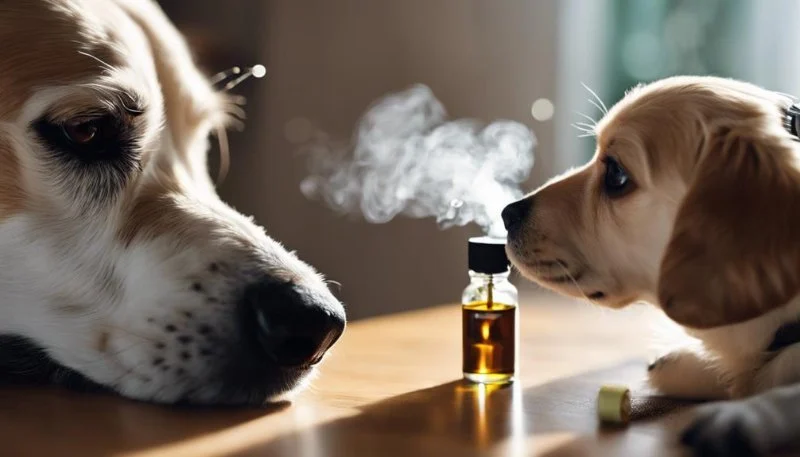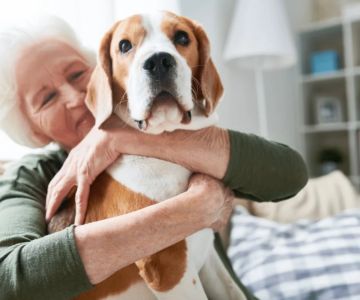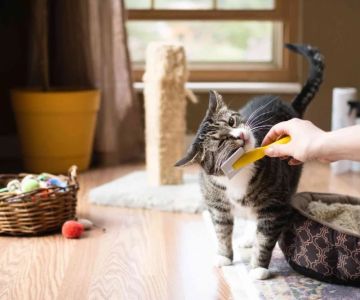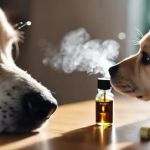
The Truth About Essential Oils and Pets: Which Ones Are Dangerous?
Essential oils have become a popular trend in aromatherapy and natural wellness, offering a wide array of benefits for humans. However, when it comes to pets, essential oils are a different story. While some oils are safe for certain pets, others can be highly toxic. In this article, we will explore the truth about essential oils and pets, including which oils are safe to use and which ones you should avoid for the safety and health of your furry friends.
- 1. Understanding Essential Oils and Their Effect on Pets
- 2. Which Essential Oils Are Safe for Pets?
- 3. Dangerous Essential Oils to Avoid for Pets
- 4. How to Safely Use Essential Oils Around Pets
- 5. What to Do If Your Pet Is Exposed to a Toxic Essential Oil
1. Understanding Essential Oils and Their Effect on Pets
Essential oils are concentrated plant extracts that contain the natural fragrance and medicinal properties of the plants. While these oils can provide relief from stress, anxiety, and physical ailments for humans, their potency can be dangerous to pets. Pets, particularly cats and dogs, have different metabolic systems than humans, making them more susceptible to the harmful effects of essential oils.
2. Which Essential Oils Are Safe for Pets?
There are some essential oils that are generally considered safe to use around pets in small amounts and when used properly. These include:
- Lavender: Lavender is known for its calming properties and is often used to help reduce anxiety in pets. It can be safely used in small amounts.
- Frankincense: This oil is commonly used to promote relaxation and can be safe when used properly with pets.
- Chamomile: Known for its soothing effects, chamomile is a safe oil to use around pets, especially for calming nerves and promoting sleep.
- Ginger: Ginger can help with nausea or digestive issues in pets and is generally safe in diluted form.
3. Dangerous Essential Oils to Avoid for Pets
While some essential oils are safe for pets, others can cause serious harm, and even death in severe cases. Here are some of the most dangerous essential oils to avoid around pets:
- Tea Tree Oil: One of the most toxic oils for pets, especially for dogs and cats. Tea tree oil can cause skin irritation, vomiting, and even central nervous system depression.
- Peppermint: Peppermint oil is toxic to cats and dogs, causing symptoms like drooling, vomiting, and even liver damage.
- Citrus Oils (Lemon, Orange, Lime): These oils contain compounds that can cause skin irritation, drooling, and even liver toxicity in pets, especially in cats.
- Eucalyptus: Eucalyptus oil can cause nausea, vomiting, and depression of the central nervous system in pets.
- Cinnamon: Cinnamon oil can cause irritation to your pet’s skin, eyes, and digestive system. It can also lead to low blood sugar.
4. How to Safely Use Essential Oils Around Pets
If you choose to use essential oils around pets, there are several safety measures you should take:
- Diffusion: Always diffuse essential oils in well-ventilated areas where your pet can leave if needed. Never force your pet to stay in a room with strong scents.
- Dilution: Always dilute essential oils before applying them to your pet’s skin. For topical use, never apply undiluted oils, as they can be too concentrated.
- Avoid direct application: Never apply essential oils directly to your pet’s fur or skin unless under the guidance of a veterinarian.
- Consult with your vet: Before introducing any essential oils into your pet’s environment, consult with your veterinarian, especially if your pet has pre-existing health conditions.
5. What to Do If Your Pet Is Exposed to a Toxic Essential Oil
If your pet has been exposed to a toxic essential oil, immediate action is necessary. Follow these steps:
- Remove your pet from the area: Move your pet to fresh air to minimize further exposure to the oil.
- Contact a veterinarian: If you suspect your pet has ingested or been exposed to a toxic oil, contact your veterinarian or an emergency animal clinic right away. The sooner you get help, the better.
- Monitor symptoms: Watch for symptoms like drooling, vomiting, difficulty breathing, or changes in behavior, and inform the vet of any symptoms you observe.
Essential oils can provide numerous benefits for humans, but when it comes to pets, caution is essential. Always ensure that you are using essential oils safely around your pets, and avoid those that are toxic to their health. For more advice on pet care or to find safe and natural products for your pets, visit Omnia Pet.








 Compassion Veterinary Clinic4.0 (83 reviews)
Compassion Veterinary Clinic4.0 (83 reviews) Riverdale Veterinary Group PC4.0 (860 reviews)
Riverdale Veterinary Group PC4.0 (860 reviews) Dr. John J. Etchart, DVM (Horses only)5.0 (4 reviews)
Dr. John J. Etchart, DVM (Horses only)5.0 (4 reviews) ABC Animal Hospital4.0 (146 reviews)
ABC Animal Hospital4.0 (146 reviews) Vetco Vaccination Clinic3.0 (6 reviews)
Vetco Vaccination Clinic3.0 (6 reviews) Petco4.0 (1082 reviews)
Petco4.0 (1082 reviews) The Truth About Essential Oils and Pets: Which Ones Are Dangerous?
The Truth About Essential Oils and Pets: Which Ones Are Dangerous? Understanding Feline Anemia: Causes, Symptoms, and Treatment
Understanding Feline Anemia: Causes, Symptoms, and Treatment Why Do Kittens Like to Chase Their Tails?
Why Do Kittens Like to Chase Their Tails? Best Ways to Keep a Kitten Cool in Summer – U.S. Guide
Best Ways to Keep a Kitten Cool in Summer – U.S. Guide The Science of a Kitten's Digestive System: How It Works and What You Need to Know
The Science of a Kitten's Digestive System: How It Works and What You Need to Know How to Train Your Kitten to Play Dead
How to Train Your Kitten to Play Dead